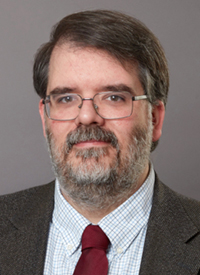Projects Mentored
Projects Mentored
Undergraduate Research Directed:
1 indicates project was basis for student's Honors College thesis
2 indicates project was presented by students at a national conference
2023 – 2024
* “Star-Shaped Regions in Non-Euclidean Geometries”, with Matthew Klepadlo
* “Philosophy of Mathematics: Provability and Truth”, with Tori de la Hoz
* “Advanced 3D Game Development”, with Rousseau Francois, Ralph Garcia, and Larry Moreno
* “Machine Learning and Procedurally Generated Stories”, with Norah Curran (1)
* “Interactive Web-Based Music Applications”, with Tyler Reid
2022 – 2023
* “Procedurally Generated Music and Computer Graphics”, with Christopher Benson and Faith Mock
* “Interactive Animations for Mathematics Education”, with Faith Mock and Jarred Navarro
2021 – 2022 (none – Sabbatical Leave of Absence)
2020 – 2021
* “Computer Graphics and GPU Programming with Java”, with James Cona
2019 – 2020
* “Agent-Based Models and Genetic Algorithms”, with Jennefer Maldonado
* “Parameterizations of Fractal-like Curves”, with Vincent Schinina (2)
* “3D Videography and Virtual Reality”, with Paul Maurantonio
* “Psychological Effects of Loot Boxes in Video Games”, with Thomas Dayton (1)
* “Computer Graphics and GPU Programming with Pascal”, with Michael Pascale
2018 – 2019
* "Augmented Reality: Theory and Applications", with Ryan Barrett (1)
* "Virtual Reality Video Game Development", with Evan Leider
* "Python Algorithms for Constructive Solid Geometry", with Bradon Cortes and Maxwell Guarnieri
2017 – 2018
* "Interactive Literature: Creation and Context", with Caitlin Lenhan (1)
* “Adaptive Learning Technology in Mathematics Education”, with Emily Harris (1)
2016 – 2017
* “Adelphi University: 3D Multiplayer Simulation”, with Mathew Mallory, Robert Monteleone, and Justin Pedowitz
2014 – 2015
* "Understanding the Fourth Spatial Dimension via Interactive Software", with Cécile Cornelus (1)
* "Creating a 3D Computer Graphics Engine", with Matthew Matero
2013 – 2014 (none – Sabbatical Leave of Absence)
2012 – 2013
* "Hyperbolic Geometry and the Art of M.C. Escher", with Julia Huntermark (1)
* "Generalized Self-Similar Curves", with Carissa Brtalik and Magdalena Mulvihill (2)
2011 – 2012
* "Polynomial Knots", with Anthony Del Latto, Dayna Goeringer, and Steven Roveto (2)
* "Evolution and Population Dynamics in Game Theory", with Tara Gangarossa (2)
* "Efficiency of Algorithms for Solving Rubik's Cube with Abstract Algebra", with Nicolas Micelli (2)
* "Hinton and the Fourth Spatial Dimension", with Samuel C. Herwood (1),(2)
* "Hyperbolic Curve Cryptography", with Katherine Weiss (2)
2010 – 2011
* "Polynomial Knots of Degree Seven", with Salvatore Giunta and Kavi Gupta (2)
* "Generalizations of the Prisoners' Dilemma", with Rachel Sherman (2)
* "Rubik Groups of Dual Polyhedra", with Corinna Venezia (2)
2009 – 2010
* "Telescopic Proofs and Fermat's Last Theorem", with Christopher Kirk
* "Group Structure of Rubik-like Puzzles (Octahedra)", with Shannon Zeckzer (2)
2008 – 2009
* "Agent-Based Simulations of the Anasazi Culture", with Nicole Alves (1), (2)
* "Group Structure of Rubik-like Puzzles (Prisms)", with Jaclyn Bogensberger (1), (2)
* "Geometry of the Parameter Space of Polynomial Knots", with Adam Schoepfin(1)
2007 – 2008
* "Game-Theoretic Agent-Based Models and Evolution of Behavioral Strategies", with Edwin Chen(1)
* "Many-Option Games and Genetic Algorithm-Based Simulation Models of Social Interaction", with Joseph Dilallo(1)
* "A Comparative Analysis of Traditional Economic Theory and Complexity Economics", with Akhil Ketkar (1)
